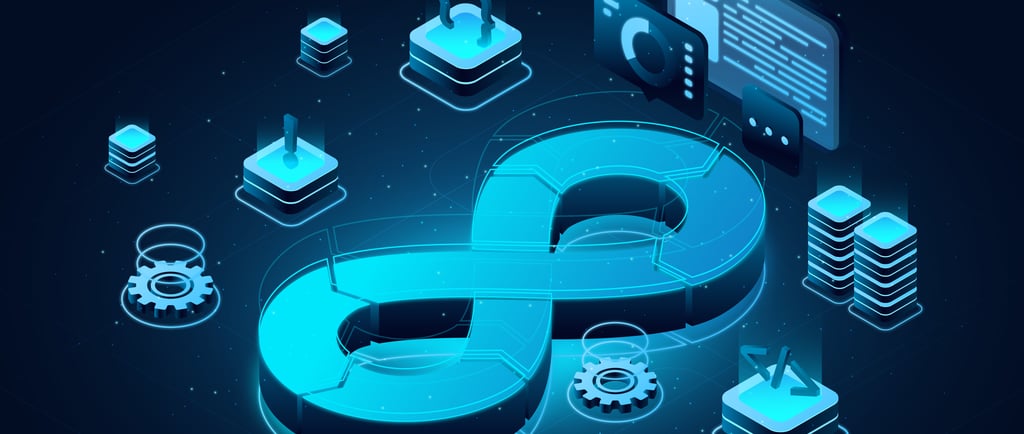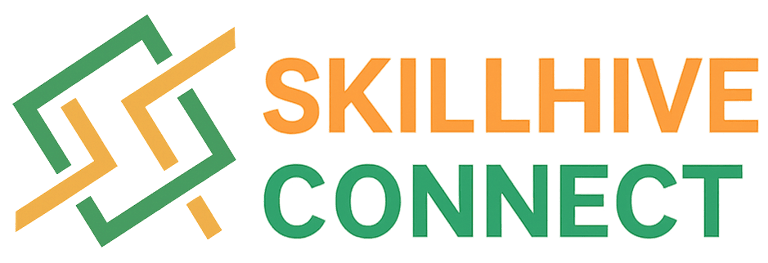☁️ AWS DevOps
Learn to deploy, automate, and manage cloud infrastructure using AWS services and DevOps tools like Docker and Jenkins.
CLOUD


🕒 Course Duration: 6 Months
🎯 Target Audience:
Fresh graduates and final-year students in Computer Science/IT
Working professionals aiming to switch to DevOps or Cloud roles
System Admins, Developers, or IT Support Engineers
Anyone aspiring to become a DevOps Engineer or Cloud Professional
📘 Course Overview:
This comprehensive hands-on AWS DevOps training is designed to equip learners with the essential skills to automate infrastructure, implement CI/CD pipelines, manage containerized applications, and deploy scalable systems on AWS Cloud. From Linux foundations to Kubernetes orchestration and Jenkins automation, this course bridges the gap between development and operations through real-world projects and use cases.
📚 Course Modules & Topics Covered
🔹 1. Linux Essentials
Basic Linux Commands and Shell Scripting
Working with VIM Editor
Ubuntu and CentOS Package Management
Filters and Pipes
Managing Services in Linux
🔹 2. Git & GitHub
Git Introduction & Installation
GitHub Account Setup
Branching, Merging, and Pull Requests
Working with Webhooks
🔹 3. AWS Cloud Platform
Introduction to AWS Cloud & Free Tier
IAM Users, Groups, Policies & Roles
EC2 Basics and Instance Management
EBS Volumes, Snapshots & AMIs
S3 Buckets and Storage Classes
Elastic Load Balancing (ELB) & Target Groups
Route53, CloudWatch & AWS CLI
RDS & ECR Setup
VPC Concepts and Networking (Optional)
🔹 4. Jenkins - CI/CD Automation
Jenkins Installation on Linux/Windows
Jenkins Plugins and Job Configuration
Git Integration with Jenkins
Freestyle Jobs & Pipelines (PAAC)
Jenkins Master-Slave Architecture
Jenkins + Docker + ECR Integration
Slack Notifications & Build Triggers
CI/CD Pipeline for Application Deployment
🔹 5. Docker - Containerization
Introduction to Containers & Docker
Docker Setup (Windows & Linux)
Docker Commands, Volumes, Images & Networking
Dockerfile & Image Building
Docker Compose for Multi-Container Setup
DockerHub & Private Repositories
🔹 6. Ansible - Configuration Management
Ansible Introduction & Setup
Inventory Files & Ad-Hoc Commands
Writing and Executing Playbooks
Configuration Automation on Linux Targets
🔹 7. Kubernetes - Container Orchestration
Kubernetes Core Concepts (Pods, ReplicaSets, Deployments)
Minikube & KOPS Cluster Setup
Namespaces and Resource Management
Scaling and Managing Deployments
💼 Project Work & Hands-On Practice
Set up CI/CD pipeline to build and deploy a Node.js/Java application
Automate server provisioning and app deployment with Ansible
Dockerize a multi-tier web application and deploy on Kubernetes
Monitor application health and log metrics using CloudWatch
Backup and restore AWS services (EC2, S3, RDS)
🧑💻 Tools & Platforms Covered
AWS, Git, GitHub, Jenkins, Docker, Ansible, Kubernetes
Linux (Ubuntu/CentOS), CLI Tools
Postman, Visual Studio Code, Slack, and more
🎯 Outcome:
By the end of this course, you’ll be able to:
Implement full-scale CI/CD pipelines using Jenkins and Docker
Automate infrastructure on AWS with Ansible and AWS CLI
Orchestrate containers using Kubernetes
Handle cloud-native deployments and monitoring
Crack DevOps roles such as AWS DevOps Engineer, Cloud Engineer, Site Reliability Engineer (SRE), and more


